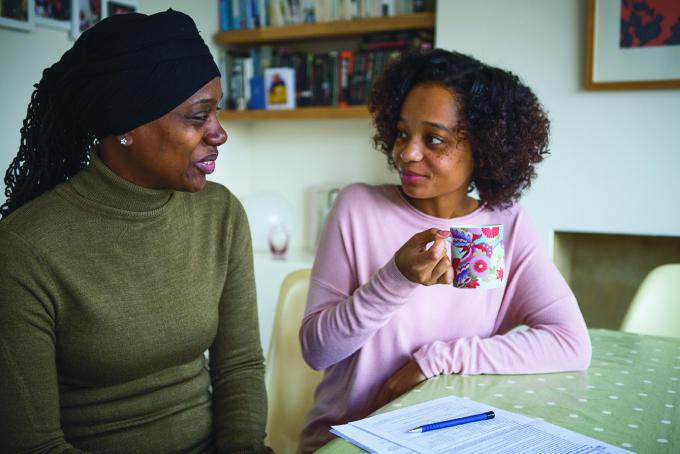Living independently is a big change for anyone to deal with, let alone when you're a young person leaving care.
But thankfully there is support in place to help you get on your feet. Everyone deserves somewhere safe, secure and stable to call home. So, when you leave care, you’re entitled to “suitable” accommodation that meets your needs.
There are different living arrangements you may be able to choose from. These include:
- Independent living: This means you live on your own in a rented property and have your own tenancy agreement. A tenancy agreement is a contract between you and the landlord which gives both you and your landlord certain rights. You will be responsible for making sure that you pay rent to your landlord, as well as utility bills like gas, water, electricity and your TV license.
- Specialist accommodation: This accommodation is for young people who may have a disability or need support with mental health problems. For instance, the accommodation might be a self-contained flat with 24/7 support available. If this applies to you, speak to your social worker or personal advisor for more information.
- Shared accommodation: If you don’t feel ready to live alone, there is the option of sharing accommodation with other young people. This means that you will have your own bedroom but share other living areas like the living room, kitchen and bathroom.
- Supported lodgings: If you’re leaving care and unsure if you’re ready to live independently straight away, you might decide to live in supported lodgings. Supported lodgings are when people and families, sometimes called “hosts”, offer to rent a room to a young person leaving care. At least one adult in the home will get training, so they can offer you practical and emotional support and equip you with the skills you need for adult life.
- We've also launched Gap Homes: a ground-breaking project that offers homely, affordable housing for young people leaving care.
Aren't ready to live independently yet?
If you don't feel ready to live on your own yet, there are other options you could consider. For instance, you could choose:
- To stay put: ‘Staying put’ gives you the option to stay with your foster carer past your 18th birthday. This doesn’t mean that you would stay in care. No one can be in care once they turn 18 and are deemed an adult. Instead, ‘staying put’ means you can rent a room with your foster carer and pay living costs. This is usually done for a brief period, for example, if you need to improve your independent living skills or finish a college course. It’s important to remember that this is a decision made by both you and your foster carer, as it impacts them too.
- To go back and live with your family: Depending on the reasons why you came into care, you may consider going back to live with a parent or another family member. If this is something you’re thinking about, it’s important to speak with your social worker or personal advisor, as well as the family members you plan to live with.

Supported lodgings for young people leaving care (care leavers)
Supported lodgings are when people and families (sometimes called “hosts”) offer to rent a room to a young person leaving care.

What is a Gap Home?
A Gap Home is a purpose-built house for young people leaving local authority care. Living in a Gap Home means you can live independently but have access to consistent wraparound support from local Barnardo’s services.
Financial support for care leavers
If you're a care-experienced young person, you may be entitled to financial support to help your education, training and employment, or for necessities such as food, transport and clothing.

